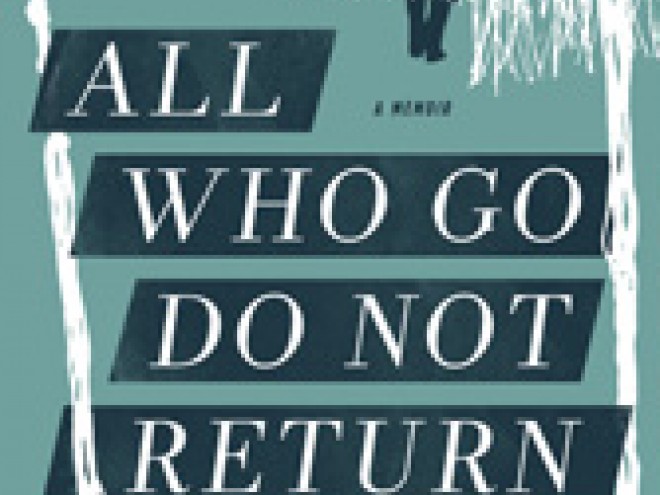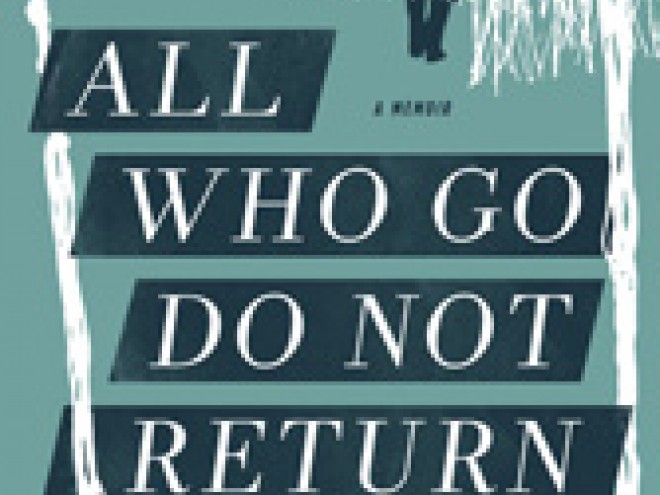Earlier this week, Shulem Deen wrote about “New Happy And Worldly Hasidim.” He is the author of All Who Go Do Not Return, a memoir about growing up in and then leaving the Hasidic Jewish world. He has been blogging here all week for Jewish Book Council’s Visiting Scribe series.
 I don’t remember precisely when it began, but at some point, about a decade ago, as a 30-year-old living among one of the U.S.’s most insular Hasidic sects, I had this fantasy: I wanted to go away to the Iowa Writer’s Workshop and earn an MFA in creative writing.
I don’t remember precisely when it began, but at some point, about a decade ago, as a 30-year-old living among one of the U.S.’s most insular Hasidic sects, I had this fantasy: I wanted to go away to the Iowa Writer’s Workshop and earn an MFA in creative writing.
How exactly did I learn about Iowa, or MFAs, or writing workshops? I can no longer recall. Just a few years earlier, at age 25, I barely knew the difference between a bachelor’s degree and a master’s, or even what a “major” was. The idea of getting a college degree seemed as remote as meeting the Pope on the Monsey Trails bus. But at some point I learned that the Iowa Writer’s Workshop was where people went to become writers. And I wanted to be a writer.
At age 33, I left the Hasidic world. I had learned a lot by then — I knew what a major was, and the difference between a bachelor’s and a master’s. But I never did get to Iowa, or any other creative writing program. Or even any old bachelor’s degree. Life got in the way, and I lost my romantic notions of American higher education. But when an opportunity came to write a book, I knew that it meant committing not only to writing but also to teaching myself how to write.
The Iowa Writer’s Workshop had been a dream because the program was legendary — one of the first such programs in the country — but when I began to lay out the first draft of my book, I realized why I really needed it, or something like it; I needed a basic understanding of literary craft, an immersive environment in which I could experiment with form and technique, and an opportunity to spend time with other students as well as with seasoned writers who had already produced bodies of work from whom to learn. But such an environment was not an option at that point — I’d committed to the book and had looming deadlines. I had no choice, I realized, but to create my own MFA writing program.
Read, read, read—this is every seasoned writer’s advice to novice writers.
I was poorly read. Secular books are scarce within most Hasidic communities, and formal education — aside from religious studies — is meager. I’d had only spotty exposure to English language books, and I’d never given myself to the task of reading anything of quality. As much reading as I had done over the years, I’d done none of the required reading of a high school or college student. And so I knew that I’d have to start my writing education by reading more widely.
Not knowing any better, I took to the classics, American authors in particular: Melville, Twain, Hemingway, Fitzgerald, Salinger. Reading these was important, but they were not particularly instructive about writing. The reading often felt tedious, at least on the first read; I would never have picked these books out of a pile — and so it was hard for me to see what made them great. I had neither my own developed aesthetic nor anyone else’s measure for greatness. I had only one measure: Am I enjoying this? And the answer for much of it was: not really.
I broadened my selections, tried tackling some of the other greats — the Russians, the French — but my reading was haphazard, disorganized, with no natural progression that might’ve helped me learn anything. I slogged through Dostoyevsky with little appreciation for either the prose style or its themes, then took up Joyce and Faulkner and understood next to nothing at all.
As I was to learn, not all reading leads directly to better writing. Reading intelligently takes skill, and before such skill is cultivated, reading indiscriminately and without guidance can be frustrating and counter-productive and it can leave you trying to imitate writers you have no business imitating. It took a while for me to learn the difference between good books and books to learn writing from. The classics, I realized, as important as they are, are particularly clunky as elementary writing instruction — especially when you’re your own instructor.
I did eventually find my footing, both as a reader and a writer. I realized that a book has to resonate in a certain way before it can be instructive. You don’t necessarily have to like the book, but you have to get a feel for what it is attempting to do, both as a whole and in its parts.
It’s hard to say at what point and with which books I began to feel that necessary resonance, but at some point I began to notice things — a page that held me captive, a turn of phrase particularly elegant, a metaphor that did exactly what it was supposed to — and I would go back and see how it was done. I began to see more clearly when a work had something for me to learn from and when it was something only to marvel at, be inspired by, but to know that it was a different sort of writing from my own, and that some voices stand only to be admired — a do-not-try-this-at-home kind of writing, best left to seasoned literary stuntmen. (Henry Miller is for me the best example of this.)
In the end, it wasn’t the classics that taught me most, but contemporaries. Frank Conroy and Tobias Wolff taught me about setting up scenes, and making good use of dialogue. Mary Carr and Rick Bragg were inspiring for their exhilarating language, even if I could never hope to mimic such fluidly exquisite prose. James Baldwin’s beautifully winding narrative essays, with its vivid descriptions of grit and racial despair rendered in language so effortlessly mesmerizing, put me on the lookout for artifice in my own writing, forced me to more strenuously weed out clunk, and to let my paragraphs flow with a more natural rhythm.
I also read books on writing, and some of them would prove indispensable. John Gardner’s The Art of Fiction remains an invaluable manual on essential narrative techniques. Stephen King’s On Writing, with its unique blend of guide and memoir, is both instructive and inspiring. Sometimes, all I needed to get me going was the image of a writer at work, or a master’s thoughts on writing, and for those, the many long form interviews in The Paris Review were both a treat and an impetus for getting to work.
Most importantly, after reading many dozens of works — novels, memoirs, short story collections, and essays — I learned that to write compelling prose I’d have to empty my mind and find my own voice, which would be markedly different from any author I’ve read — and that this is what makes writing good, not the other way around.
I had many crises of confidence while writing. There were times when I thought the whole undertaking to have been folly. I’d berate myself for thinking that an ex-Hasid with little formal education could teach himself, while nearing middle age, what others pay exorbitant sums of money to learn. If only I’d gotten that MFA, I would think, I’d know how to set this scene, perfect that awkward transition, replace a clunky metaphor with a stream of effortlessly breathtaking prose.
A crisis of confidence does nothing to make a deadline go away, though, and I had no choice but to go on. My book took four years to write, and the dual task of teaching myself as I went made much of the process tormenting. By the time I submitted that final draft to my publisher in February 2014 I had very nearly exhausted myself. But it also remains the most exhilarating work I’ve done in my 40 years of life. I would gladly do it all over again.
Shulem Deen is the founding editor of Unpious, an online journal for voices on the Hasidic fringe. His work has appeared in Salon, The Brooklyn Rail, Tablet Magazine, The Jewish Daily Forward, and elsewhere. He serves as a board member at Footsteps, a New York City-based organization that offers assistance and support to those who have left the ultra-Orthodox Jewish community. He lives in Brooklyn, New York.
Related Content:
- Essays: On Writing, Publishing, and Promoting
- My Influences Are Showing by Liana Finck
- Reading List: Classic Jewish Literature
Shulem Deen is a former Skverer Hasid and the founding editor of Unpious. His work has appeared in The Jewish Daily Forward, Tablet, and Salon. He lives in Brooklyn, NY.


